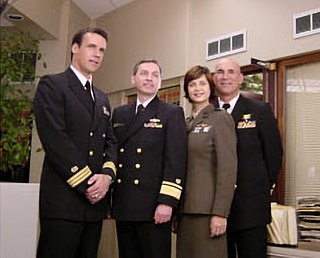A Quote by Bonnie Hunt
I grew up in a working-class neighborhood, so there was always a sense of struggle, but we had hope.
Related Quotes
Let Girls Learn issue has always been personal for me. I grew up in a working-class neighborhood on the South Side of Chicago where most folks, including my parents, didn't have college degrees. But with a lot of hard work - and a lot of financial aid - I had the chance to attend Princeton and Harvard Law School, and that gave me the confidence to pursue my ambitions.



































